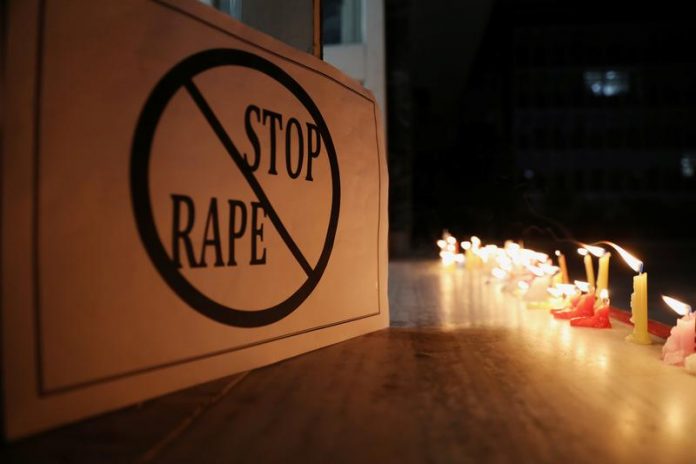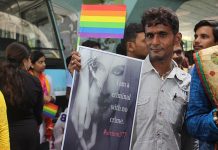This article has been written by Oishika Banerji of Amity Law School, Kolkata. This article highlights India’s obsession with heterosexuality through the lenses of the study on corrective rape.
Table of Contents
Introduction
The term ‘corrective rape’ refers to the rape committed by straight against lesbians in order to “cure” or “correct” their homosexuality. Put simply, corrective rape is a deterrent for being gay and infringing traditional gender presentation. The term was coined in South Africa where such crimes are rampant. Often it is the family members of the victim who facilitate it. The underlying causes of corrective rape are frequently disregarded or downplayed in the United States, maintaining the high incidence of sexual violence. Sexual assault is frequently characterized as an issue inherent in conventional gender and sexual orientation conventions, rather than as a problem centred in the dynamics of a relationship. Americans appear to have a skewed, depoliticized understanding of rape that excludes everyone but heterosexual women. Corrective rape, on the other hand, is a form of political, structural, and group-based violence.
The scenario in India stands extremely disheartening as her obsession with heterosexuality has taken a toll on the homosexuals in her territory. As the country stands in solidarity towards the victims of rapes on one hand, on the other such heinous crimes are encouraged to ‘cure’ or ‘purify’ homosexuals who are absolutely normal human beings. This article highlights such cruel practices against homosexuals which is the consequence of the pride India carries about heterosexuals.
India’s perception about homosexuals through the lenses of corrective rape
According to statistics from the LGBTQ Collective’s Crisis Intervention Team in Telangana, 15 cases of ‘corrective rapes’ have been documented in the group in the previous five years. “We are sure there are many more cases, but they go unreported”, says Vyjayanti Mogli, a member of the Crisis Intervention Team. She further added that the Team had come across such cases not because they reported the rape, but because they sought help to flee their homes. Because the perpetrators in most cases of corrective rape are family members, the victims do not pursue legal action. Victims find it traumatic to talk about their brothers or cousins being rapists, so they prefer to forget about it and destroy relations with their relatives.
Families in rural India have their own ways of dealing with LGBTQ people, far away from gay pride parades, meet-ups, and intense Twitter debates. In other areas, hidden honor killings are arranged so that a young homosexual man’s sole option for survival remains to flee to a metropolis in the dead of night, with no money or social support. Corrective rape purports to cure what isn’t wrong, and irreparable damage is sometimes exacerbated by family members who are not only unsupportive but also believe that the assault was justified. Younger lesbians are the most vulnerable since they are still financially reliant on their families. Older women are more aware of their rights and have often moved out of their families’ houses. Even where one should feel free and comfortable, there remains a lot of worries. Some teenage girls leave home and struggle to support themselves. Lesbians living in one-room dwellings in informal settlements are prone to alcohol and drug misuse. As a coping method, many turn to the same. Dealing with all this stress alone can lead to low self-esteem, which remains a major risk factor for suicide.
Legal shield to homosexuals in India
A 157-year old colonial law that criminalized certain sexual acts as ‘unnatural offences’ with a stringent deterrent of 10 years imprisonment recognized under Section 377 of the Indian Penal Code, 1860 was scrapped down by the Supreme Court of India in the historic decision of Navtej Singh Johar v. Union of India (2018). Justice DY Chandrachud said ‘the State has no right to control the private lives of LGBT community members and that the denial of the right to sexual orientation was the same as denying the Right to Privacy’. Although public opinion in India’s major cities stood in favor of repealing the aforementioned law, religious organizations and traditional rural populations remained staunch opponents of the same.
Section 375 read with Section 376 of the Indian Penal Code, 1860 recognizes rape of a woman as an offence with rigorous imprisonment of either description for a term which shall not be less than ten years, but which may extend to imprisonment for life, and shall also be liable to fine. Unfortunately ‘corrective rape’ is not considered with the definition of rape provided by the Indian criminal law. This is why it becomes extremely necessary for the law-making authorities to draw their attention to the unfair advantage in the form of ‘corrective rape’ being taken by several Indian citizens to rectify the ‘disease’ of homosexuality because of the less clarifying existing criminal laws. Although the Mental Health Care Act, 2017 can give modest protection to the LGBTQIA+ community, a new law is required to completely eliminate this heinous behavior.
Forced marriages alongside corrective rape have kept the gay conversion theory alive in India. In a June 2021 ruling, the Madras High Court outlawed the practice of ‘conversion therapy’ in India, establishing safeguards for LGBTQIA+ people in the nation. The case involves a lesbian couple who were forced to flee their homes after their parents threatened them due to their relationship. The families proceeded to the police station and filed a missing-person report, following which the pair sought protection from their family’s persecution and police interrogation through the courts. The High Court in S. Sushma v. Commissioner of Police (2021) ordered the prohibition of conversion therapy and ‘any attempts to medically cure or change the sexual orientation of LGBTIQA+ people to heterosexual, or the gender identity of transgender people to cisgender’, in order to protect the couple’s Right to Dignity, Life, Privacy, and Freedom of Choice guaranteed by the Indian Constitution. In addition, the Court suggested that specific standards be implemented to ensure that LGBTQIA+ people’s privacy and constitutional rights are maintained.
Honestly, we don’t have laws to prohibit corrective rape. What we have are precedents and reliance on the judicial system to stand up for human rights and constitutional principles. As corrective rape remains increasing in the country like forest fires, legislatures should wake up from their sleep.
Media highlights on corrective rape
Media has been an indispensable source to bring forth stories behind closed doors that go unnoticed but remain daunting. Satyavati, a film by Hyderabadi director Deepthi Tadanki, revolves around the aspect of corrective rape. The movie is based on ‘shocking real-life incidents that occurred in Bangalore. “While doing research for my film, I came across two heartbreaking stories of corrective rape; one in which a gay girl was raped by her cousin in order to be ‘cured’ of her homosexuality and another in which family members forced a gay boy to have sex with his mother in order to turn him straight.'” “I attempted to contact these victims, but they refused to speak with me,” said Deepthi. A lesbian couple and their straight companion are shown in the film. “When the straight girl’s family comes to see her, they are skeptical that she is in an ‘unnatural’ relationship with one of the lesbian females. As a result, they plan a ‘corrective rape’ on both their daughter and the lesbian girl” reveals the 27-year-old Guntur native, who has raised finances for the film through crowd-sourcing.
While family and relatives should be supporting their lesbian youth, they are often participating in corrective rape. In Eswatini, South Africa where the LGBTI+ community is brutally marginalized and criminalized, it’s too usual for young women to be beaten up by males who are attempting to propose, frequently as a result of the woman identifying as a lesbian. She may be assaulted by a male in public and receive no help from others. Worse, corrective rape is becoming more common. In 2018, at least five women were raped by a relative to ‘correct’ their sexual orientation in just four months. Rock of Hope ‘REActors,’ data collectors who register incidences of human rights breaches within the LGBTI+ and sex worker communities, are documenting these egregious violations of human rights. This international instance has been brought to light in this article because the offence of rape which has been immortalized by the word ‘corrective’ exists across the globe which tells us where we are leading to even in this 21st century.
Conclusion
The severe anti-homosexuality sentiment in our culture is well-known. Discrimination, marginalization, name-calling, violence, and sexual assault have all been commonplace for gay people. However, being raped by one’s own family members for the sake of ‘correction’ contradicts all logic of decency and compassion. Today, more Indian youth are accepting homosexuality and queer identities than ever before, yet acceptance of their sexuality and the ability to freely express their gender choices remain a daily fight for LGBTQ people inside the confines of their families, homes, and schools. In order to bring in a positive change, it is necessary to change our perception regarding homosexuality which gets overshadowed by our inclination towards heterosexuality. An indispensable need for stringent legislation, robust enforcement mechanism and cooperation of the courts cannot be ignored in the process of erasing this crime.
References
- https://www.livemint.com/Sundayapp/sAYrieZdZKEybKzhP8FDbP/Being-LGBT-in-India-Some-home-truths.html.
- https://timesofindia.indiatimes.com/life-style/relationships/parenting/parents-use-corrective-rape-to-straighten-gays/articleshow/47489949.cms.
- https://www.tiss.edu/uploads/files/8The_Nature_of_violence_faced_by_Lesbian_women_in_India.pdf.
- https://www.reuters.com/article/india-lgbt-rape-idUSL3N0YW57Z20150611
Students of Lawsikho courses regularly produce writing assignments and work on practical exercises as a part of their coursework and develop themselves in real-life practical skills.
LawSikho has created a telegram group for exchanging legal knowledge, referrals, and various opportunities. You can click on this link and join:
https://t.me/joinchat/L9vr7LmS9pJjYTQ9
Follow us on Instagram and subscribe to our YouTube channel for more amazing legal content.
 Serato DJ Crack 2025Serato DJ PRO Crack
Serato DJ Crack 2025Serato DJ PRO Crack









 Allow notifications
Allow notifications


